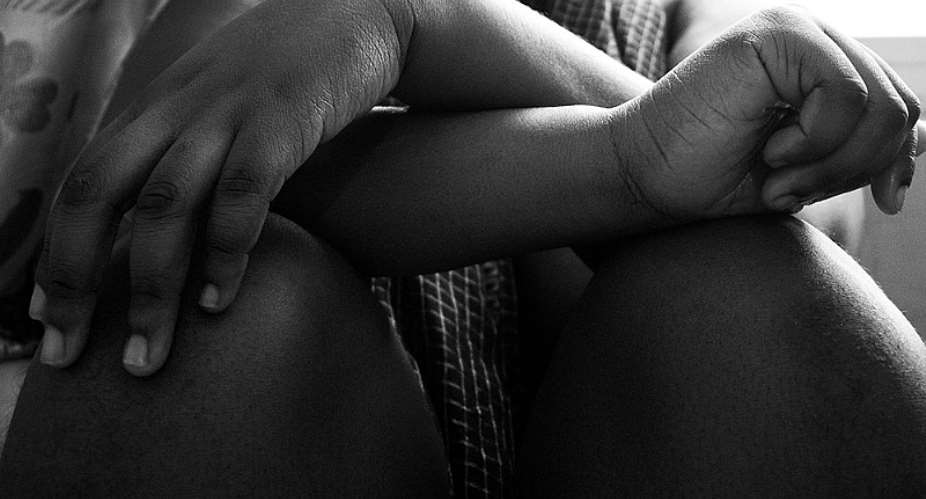The ability to make consensual decisions about your body may be a luxury some people enjoy. But for many women, children, and marginalized people around the world, that freedom is only a fantasy. This ‘privilege’ is described as a right to bodily autonomy.
In many societies, vulnerable people do not hold the ultimate authority over their bodies. For example, a United Nations Population Fund (UNFPA) report reveals that the proportion of women aged between 15 and 49 who could make autonomous decisions pertaining to sex with partners or husbands, contraception, and seeking health care is as low as 7%.
Bodily autonomy is not limited to this. It could range from simply piercing a child’s ears to graver issues as virginity testing on girls, female genital mutilation, sexual maturity exams on migrant and refugee children to determine their age, circumcision of boys, ‘corrective’ surgeries on intersex children, and forced or coerced sterilisation of children with disabilities. Some adults are lucky enough to stand their ground, but women and children usually hold the shorter end of the stick.
Under the guise of culture in many African countries, these practices continue unabated. This leads me to another form of violation of bodily autonomy that is not often discussed - tribal markings on children, often from infancy.
‘Everywhere I go, people look at me like I am something out of a movie, and I do not mean that in a good way,’ Titi, a student in her early twenties, tells me. ‘I wish I did not have these marks on my face.’
These lacerations, used as identity markers, are usually inscribed by cutting or burning the body during childhood. Like Titi, thousands of people worldwide continue to live in constant hate and shame over decisions made regarding their bodies without their consent. For some African homes, these markings result from traditional medical interventions or a form of protection from evil.
One may argue that these practices have died off. But the news tells a different story. In 2019, a father lost his first son to scarification from tribal marks. Although the practice may not be as rampant as it used to be, even the subdued continuation calls for action.
Like the famous face model, Adetutu Alabi, some survivors of this act have learned to live with these violations on their bodies. It does not have to be so. Vulnerable people do not have to put up with the consequences of the actions of their abusers.
However, as earlier mentioned, tribal markings are but a fragment of violations made against the right to bodily autonomy. In a recent survey, there is a common voice in the answers from women globally when asked about their views on the issue: they emphasise the importance of total control over their body in relation to their mental health.
‘I feel like a major part of me was taken away, like I was abused,’ Titi says. ‘It is not fair that other people get to decide how a child should look or act like. These decisions haunt us in the future, and they, the perpetrators, get to go on with their lives.’
In the same vein, research has demonstrated that denying women access to abortion triggers outcomes that reverberate throughout their lives, impacting everything from the school years they complete to how much they earn.
Change is constant. It does not make any sense for a rapidly changing world to continue to hold vulnerable people for ransom over their bodies. Bodily autonomy is the last issue that needs a challenge. Solutions for the growing global insecurities, economic meltdowns, and environmental disasters should top the priority, not determining what shapes of tribal marks a child should have.
Medically necessary decisions to save a person from urgent and irreparable harm should be the only exceptions to seeking consent. The opposite is harm.
Claire Mom is a Nigerian journalist and a sexual and reproductive health rights advocate. You can reach her via email at [email protected] or Twitter @speakclairely_





 Supreme Court clears way for dual citizens to hold key public positions
Supreme Court clears way for dual citizens to hold key public positions
 Be transparent, don’t suppress the truth – Prof. Opoku-Agyemang to Jean Mensa
Be transparent, don’t suppress the truth – Prof. Opoku-Agyemang to Jean Mensa
 ‘I won’t tell the world I was only a driver’s mate during challenges’ – Prof Jan...
‘I won’t tell the world I was only a driver’s mate during challenges’ – Prof Jan...
 We’ll prosecute corrupt officials of Akufo-Addo’s govt – Prof Jane Naana
We’ll prosecute corrupt officials of Akufo-Addo’s govt – Prof Jane Naana
 [Full text] Acceptance speech by Prof Jane Naana Opoku-Agyemang as 2024 NDC Runn...
[Full text] Acceptance speech by Prof Jane Naana Opoku-Agyemang as 2024 NDC Runn...
 Election 2024: Don’t be complacent, we haven’t won yet – Asiedu Nketia cautions ...
Election 2024: Don’t be complacent, we haven’t won yet – Asiedu Nketia cautions ...
 Election 2024: Stop fighting over positions in Mahama’s next govt – Asiedu Nketi...
Election 2024: Stop fighting over positions in Mahama’s next govt – Asiedu Nketi...
 Prof Jane Naana Opoku-Agyemang will restore dignity of vice presidency – Fifi Kw...
Prof Jane Naana Opoku-Agyemang will restore dignity of vice presidency – Fifi Kw...
 'Ghana beyond aid' has turned out to be 'Ghana without compass' – Naana Opoku-Ag...
'Ghana beyond aid' has turned out to be 'Ghana without compass' – Naana Opoku-Ag...
 Nation builder Mahama will deliver on his promise of a 24-hour economy for the b...
Nation builder Mahama will deliver on his promise of a 24-hour economy for the b...
